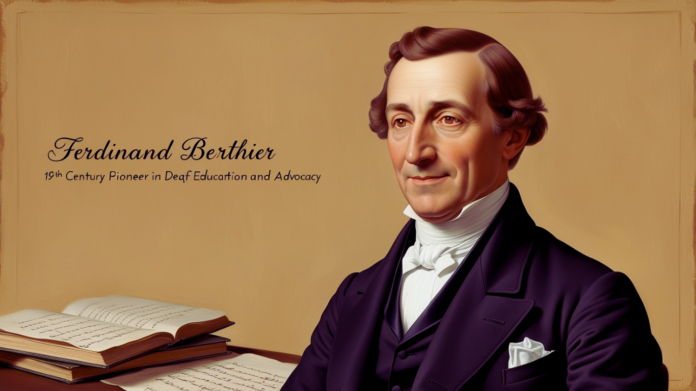Ferdinand Berthier remains a towering figure in military history, renowned for his remarkable contributions to the Napoleonic Wars and military strategy. His legacy continues to influence military leaders and scholars alike. Let’s dive into the life, achievements, and lasting impact of this extraordinary general.
Who Was Ferdinand Berthier?
Early Life and Background
Ferdinand Berthier was born on April 20, 1753, in a small town near Versailles, France. Coming from a family of minor nobility, Berthier was instilled with the values of duty and service from a young age. His early years laid the groundwork for a life dedicated to the military.
Military Career Beginnings
Berthier’s military journey began at just 16 when he joined the French Army. He quickly rose through the ranks, showcasing his keen strategic mind and leadership abilities. His initial years set the stage for a career that would alter the course of European history.
Contributions to Military Strategy
Innovations in Warfare
One of Berthier’s most notable contributions was his innovative approach to military logistics. He understood that effective supply chains were as crucial as battlefield tactics. His methods ensured that troops were well-fed and well-equipped, which significantly improved army morale and effectiveness.
The Role in Napoleonic Wars
Berthier played a pivotal role in several key battles during the Napoleonic Wars. From the stunning victory at Austerlitz to the brutal campaigns in Russia, his strategic insight helped shape the outcomes of these conflicts. His ability to adapt tactics in real-time was unmatched, making him a valuable asset to Napoleon.
Berthier’s Relationship with Napoleon
Chief of Staff Dynamics
As Napoleon’s chief of staff, Berthier was instrumental in executing the emperor’s plans. He was the man behind the curtain, ensuring that strategies were not only devised but also meticulously implemented. His organizational skills transformed the French Army into a formidable fighting force.
A Partnership of Genius
The relationship between Berthier and Napoleon was complex. While they often worked in harmony, there were times when their visions clashed. Nevertheless, their collaboration was characterized by mutual respect and a shared ambition for military excellence.
The Impact of Berthier’s Leadership
Training and Development of Troops
Berthier was not just a strategist; he was also a mentor to many young officers. He implemented training programs that focused on discipline and tactical proficiency, which would serve the French military well for decades. His influence extended beyond the battlefield into the hearts and minds of those he trained.
Influence on Future Generations
The principles that Berthier espoused in military leadership and strategy have left a lasting imprint on future generations. His teachings continue to be studied in military academies worldwide, ensuring that his legacy endures.
Berthier’s Downfall
Changes in Political Climate
As the political landscape in France shifted, so did Berthier’s fortunes. The rise of new leaders and changing allegiances in the post-Napoleonic era led to a gradual decline in his influence. The very environment that once celebrated him now seemed to turn against him.
Death and Historical Reflection
Berthier died on June 1, 1815, under mysterious circumstances. His passing marked the end of an era, and historians have debated his legacy ever since. Was he a hero or merely a talented subordinate? The answers lie in the complexities of his life and the times he navigated.
The Cultural Legacy of Berthier
Representation in Media and Literature
Berthier’s life and achievements have been depicted in various forms of media, from historical novels to films. These portrayals often highlight his strategic brilliance and his pivotal role in the Napoleonic Wars, helping to keep his story alive for future generations.
Monuments and Commemorations
In France, several monuments honor Berthier’s memory. These tributes serve as a reminder of his contributions to military history and the lasting impact of his strategies on modern warfare.
Lessons from Berthier’s Life
Leadership and Strategy
Berthier’s life offers invaluable lessons for modern leaders. His ability to adapt, his commitment to training, and his strategic foresight are qualities that can inspire anyone looking to lead effectively.
Resilience and Adaptability
The ability to remain resilient in the face of challenges is a key takeaway from Berthier’s legacy. His career was filled with ups and downs, yet he adapted to changing circumstances, ensuring his place in history.
Conclusion
The legacy of Ferdinand Berthier is one of innovation, leadership, and resilience. His contributions to military strategy have not only shaped the past but also continue to influence military thinking today. As we reflect on his life, it’s clear that Berthier was not just a general; he was a visionary whose impact resonates through the annals of history.
FAQs
What were Ferdinand Berthier’s main contributions to military strategy?
Ferdinand Berthier revolutionized military logistics, emphasizing the importance of supply chains and troop morale. He was pivotal in key battles during the Napoleonic Wars and contributed innovative tactics that are studied today.
How did Berthier influence Napoleon’s campaigns?
As Napoleon’s chief of staff, Berthier was crucial in planning and executing military strategies. His organizational skills ensured the army was effectively mobilized and supplied, directly impacting the outcomes of numerous battles.
What led to Berthier’s decline in favor?
The political climate in France shifted dramatically after Napoleon fell from power. New leaders emerged, and Berthier’s influence waned, leading to his eventual decline and diminished role in military affairs.
Are there any monuments dedicated to Berthier?
Yes, several monuments and memorials across France commemorate Berthier’s contributions to military history, serving as reminders of his strategic genius and enduring legacy.
What lessons can modern leaders learn from Berthier?
Modern leaders can learn from Berthier’s adaptability, commitment to training, and strategic foresight. His ability to navigate challenges and lead effectively remains relevant in today’s fast-paced world.

